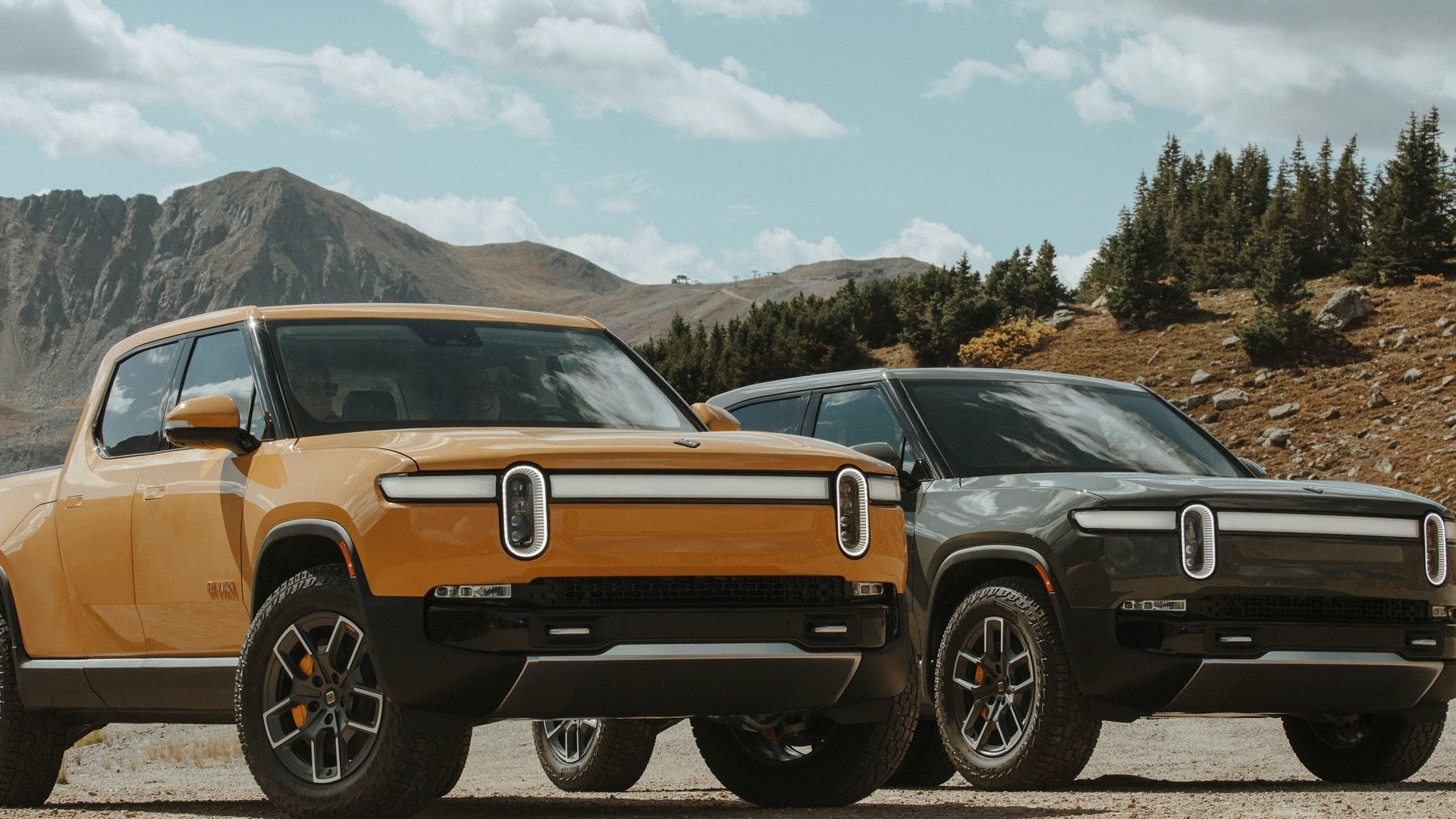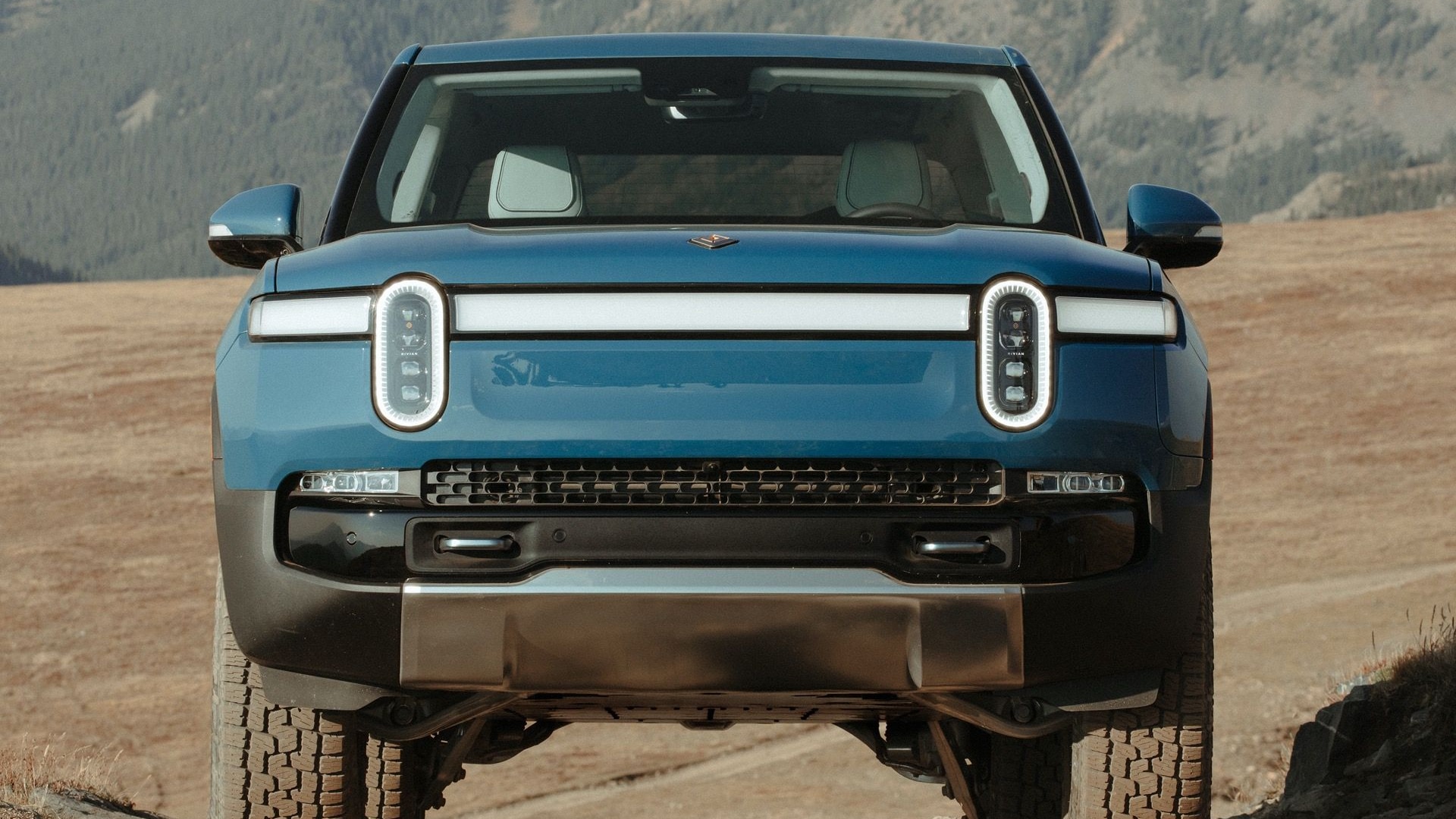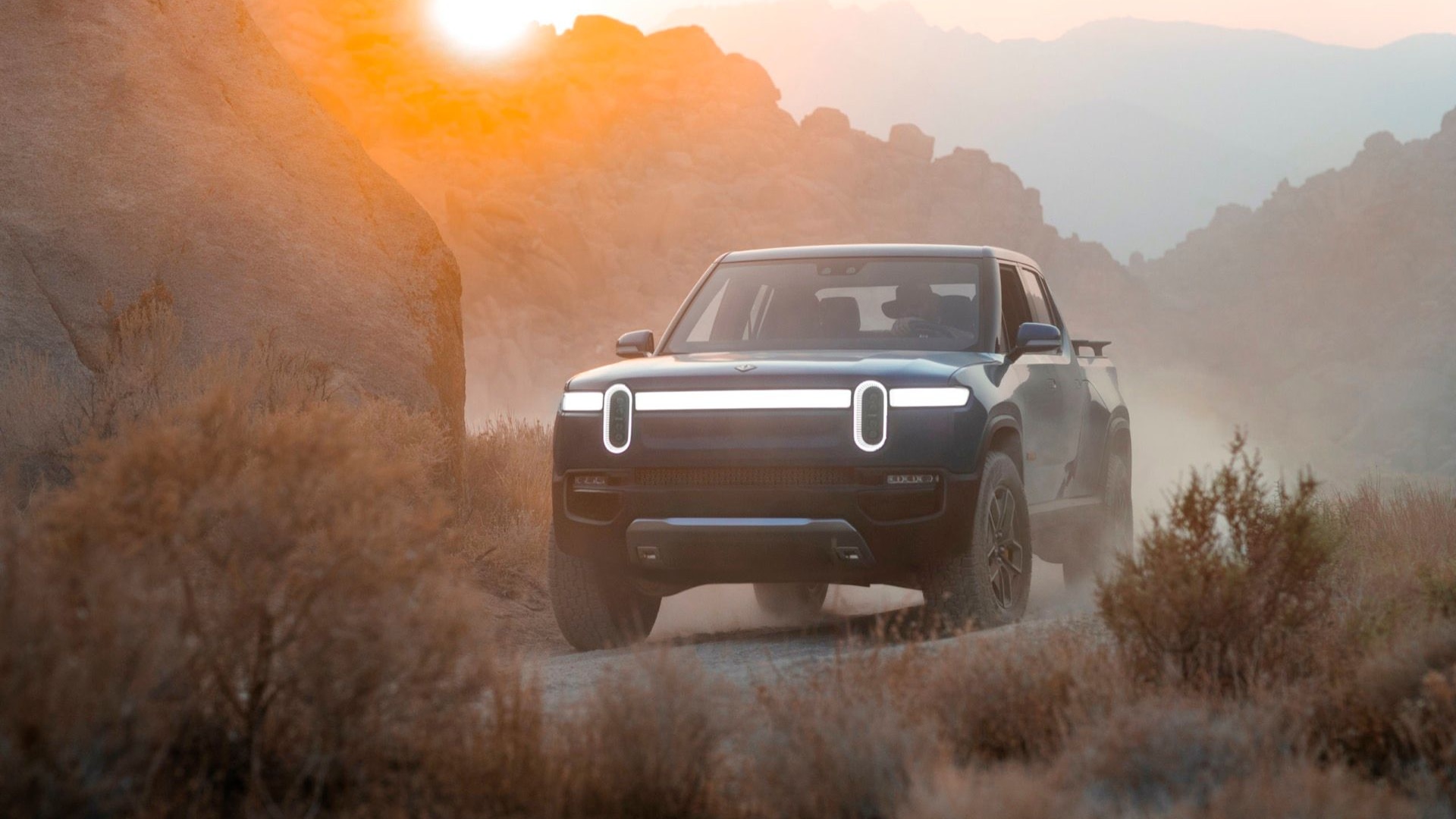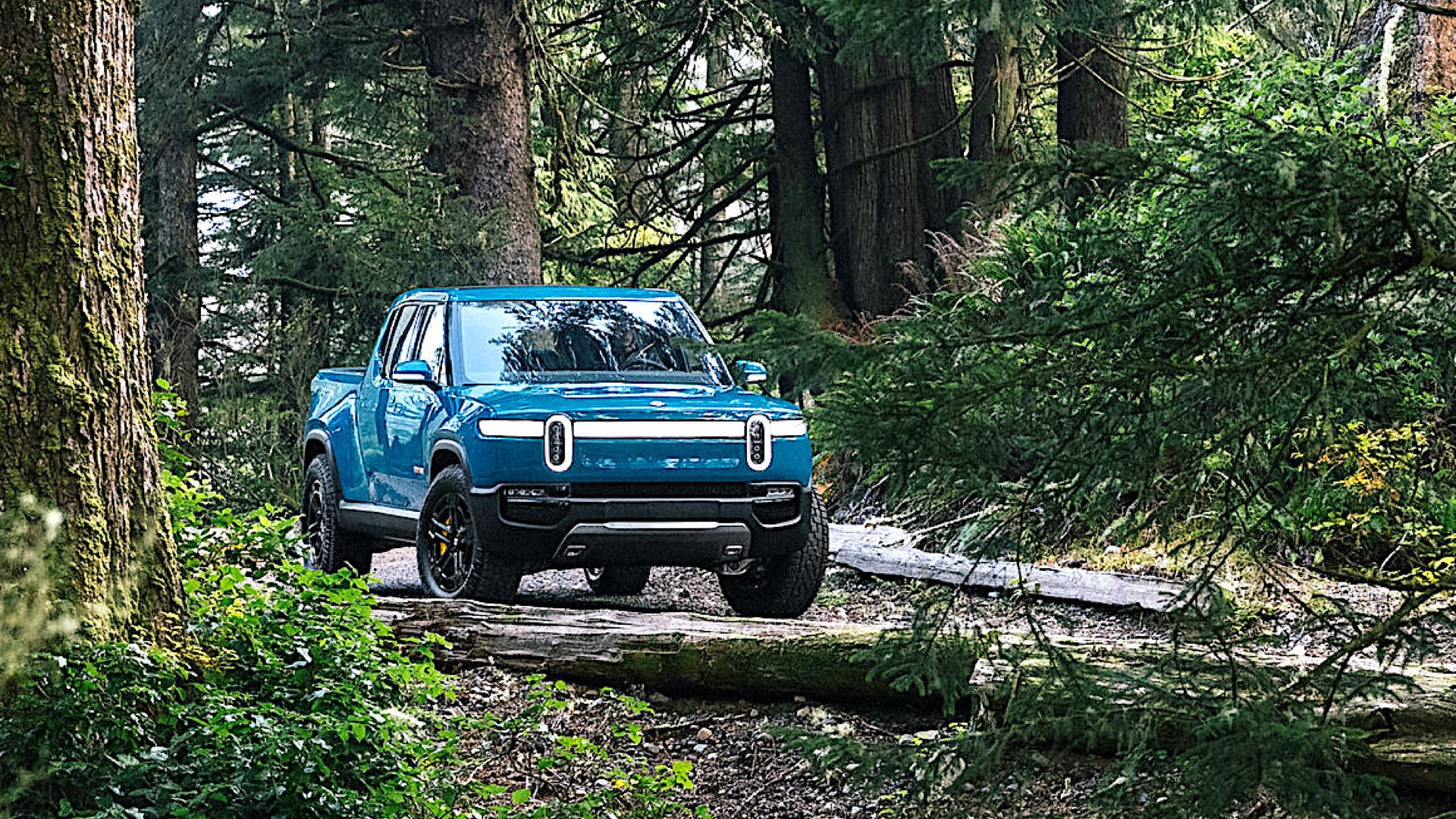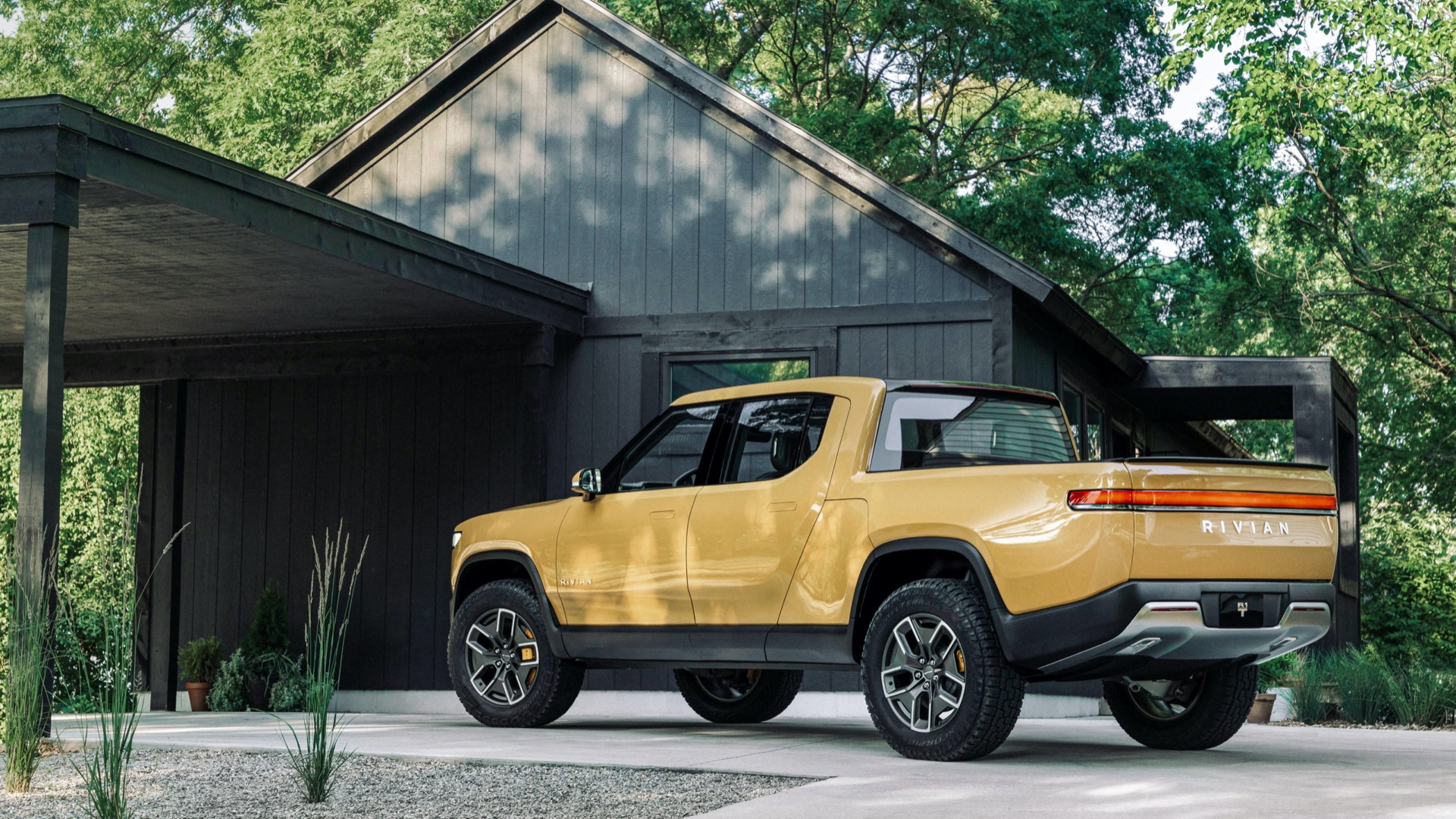The electric truck maker Rivian confirmed Wednesday that the line of people waiting for its trucks has been getting longer, far faster than it’s been building them.
Since Rivian’s controversial price hike of up to $12,000 in March—one met with collective pushback from early adopters—the company has received 10,000 new reservations for its R1T and R1S in the U.S. and Canada.
That’s double the roughly 5,000 electric trucks that Rivian made cumulatively from the production start for customer trucks in September 2021, until May 9.
Yes, that’s at the new prices, with preorders at what Rivian anticipated to be an average price of over $93,000. Surprisingly, confirmed CEO RJ Scaringe, a high ratio of those who have made reservations since Rivian’s price hike have opted for the more expensive quad-motor version.
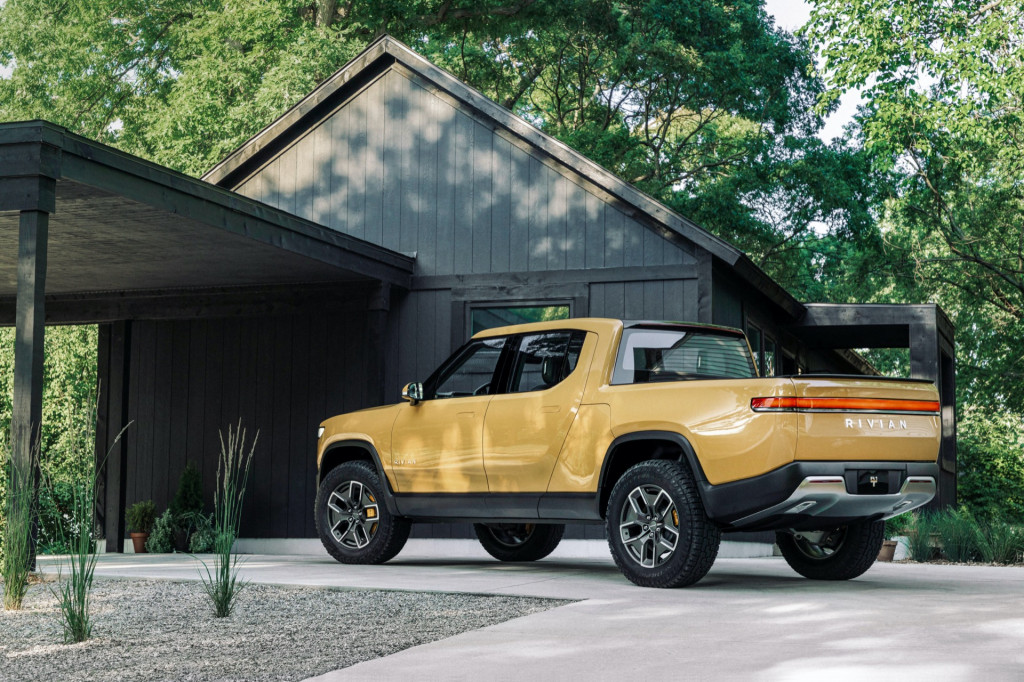
Rivian R1T
“What we see is customers have a very high willingness to spend, and there’s a lot of pricing power that these vehicles have, and what we’ve built as a brand has,” said Scaringe, responding to a question from Charles Coldicott, of Redburn. “And that gives us a lot of confidence as we go into the next 6 to 12 months understanding the inflationary environment that we're in—that there is significant pricing capability on these vehicles.”
As Scaringe suggested, that led Rivian to essentially streamline the number of variants of the R1 family that were in the works, as it looked at the “incredible level of demand we have for the R1 products.”
Rivian remains at a very early stage of the ramp. In Q1, Rivian delivered 1,227 vehicles, while it built 2,553 vehicles.
Rivian pointed to continued supply-chain issues as a reasons for reduced production at times. ”Since March 31, 2022, we have been forced to stop production for longer periods than anticipated, resulting in approximately a quarter of the planned production time being lost due to supplier constraints,” it summed. But it used supply constraints and the resulting line shutdowns to “refine the processes and equipment for R1S,” as it ramped production of the SUV, alongside the R1T pickup.
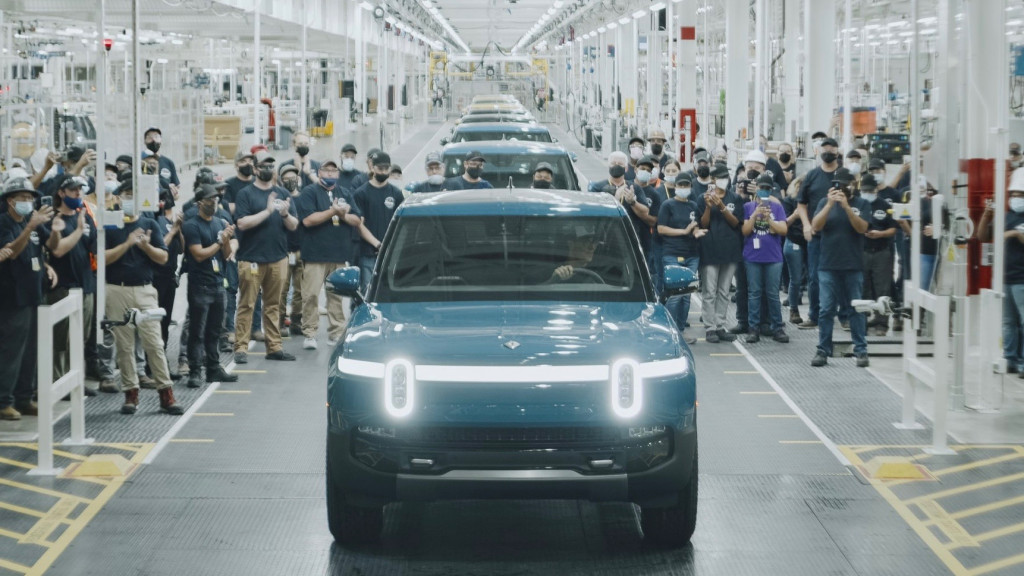
First customer Rivian R1T (from Rivian CEO RJ Scaringe via Twitter)
The company maintains a 25,000-vehicle production target for 2022, while it aims for an eventual total planned annual capacity of about 600,000 between its Illinois and Georgia plants. Rivian says that it plans to build its more affordable R2 SUV family at the future Georgia plant starting in 2025.
Rivian also emphasized that its learnings from both the R1 family and its vans, termed RCV, are being used in its development of its second platform, for the R2, which Scaringe said would represent a high bar in terms of affordability, economics, and efficiency.
For the R2, it’s looking at new ways of using castings, and the opportunity to look at more parts consolidation. It’s working toward the use of its internally designed “Enduro” single-motor unit—first due for its vans later this year. And in March it confirmed a plan for LFP cells, heat pumps, and an 800V upgrade.
The company boasted that the company’s vertically integrated strategy for software and all the associated control units puts it at an advantage, as it can keep rolling out new features and enhancements. “Diagnostic data collection has allowed us to monitor vehicle health parameters and verify that vehicle performance meets our expectations,” it said.
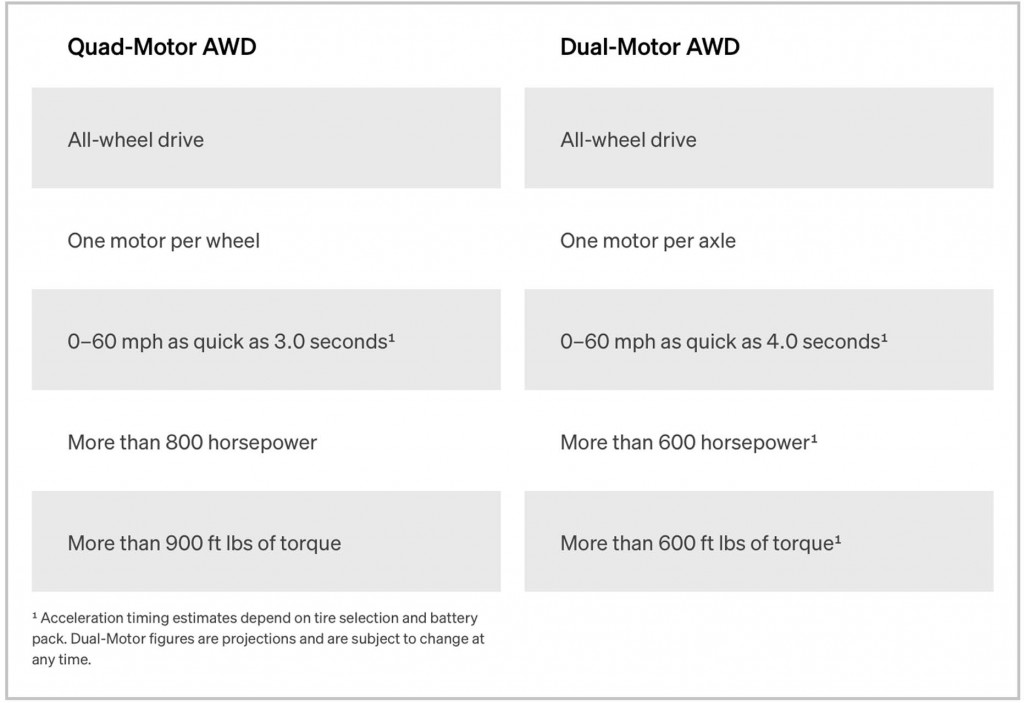
Rivian R1T and R1S dual-motor vs quad-motor specs
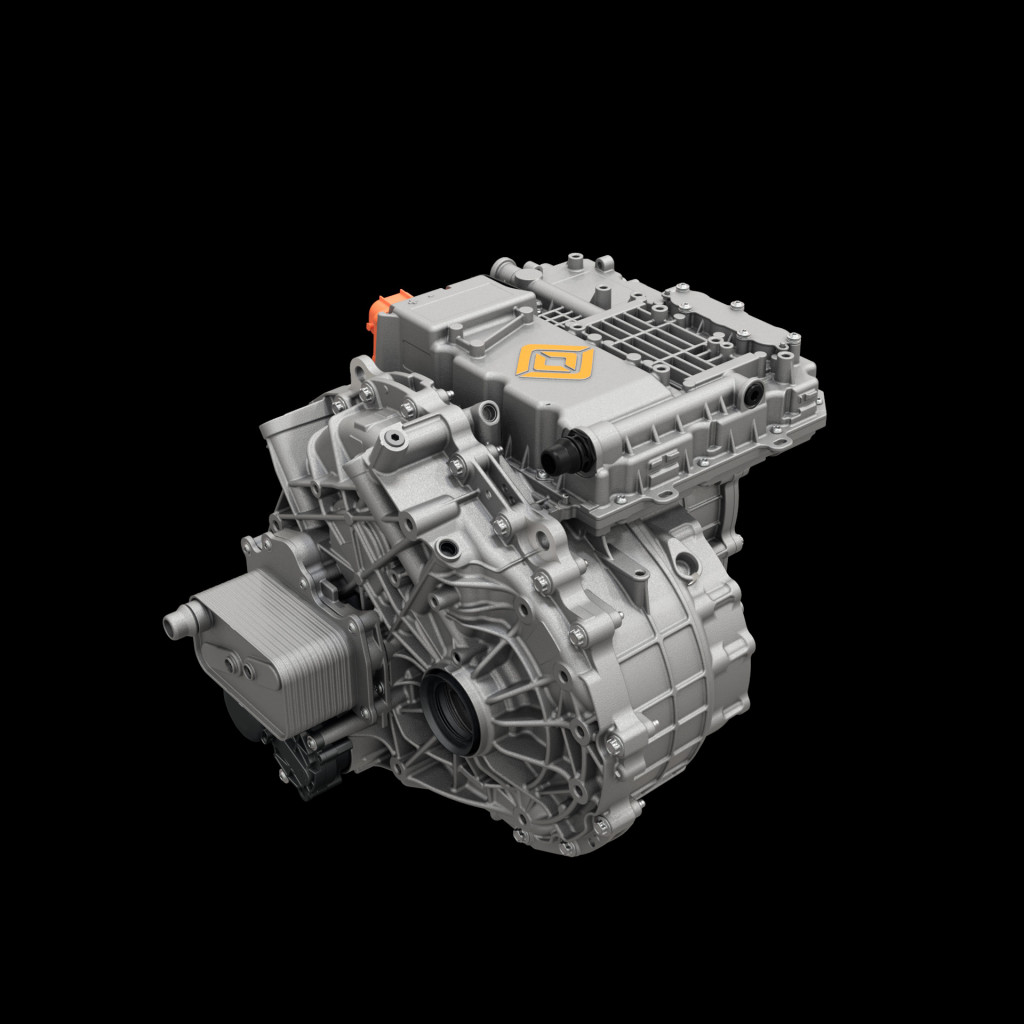
Rivian dual-motor components
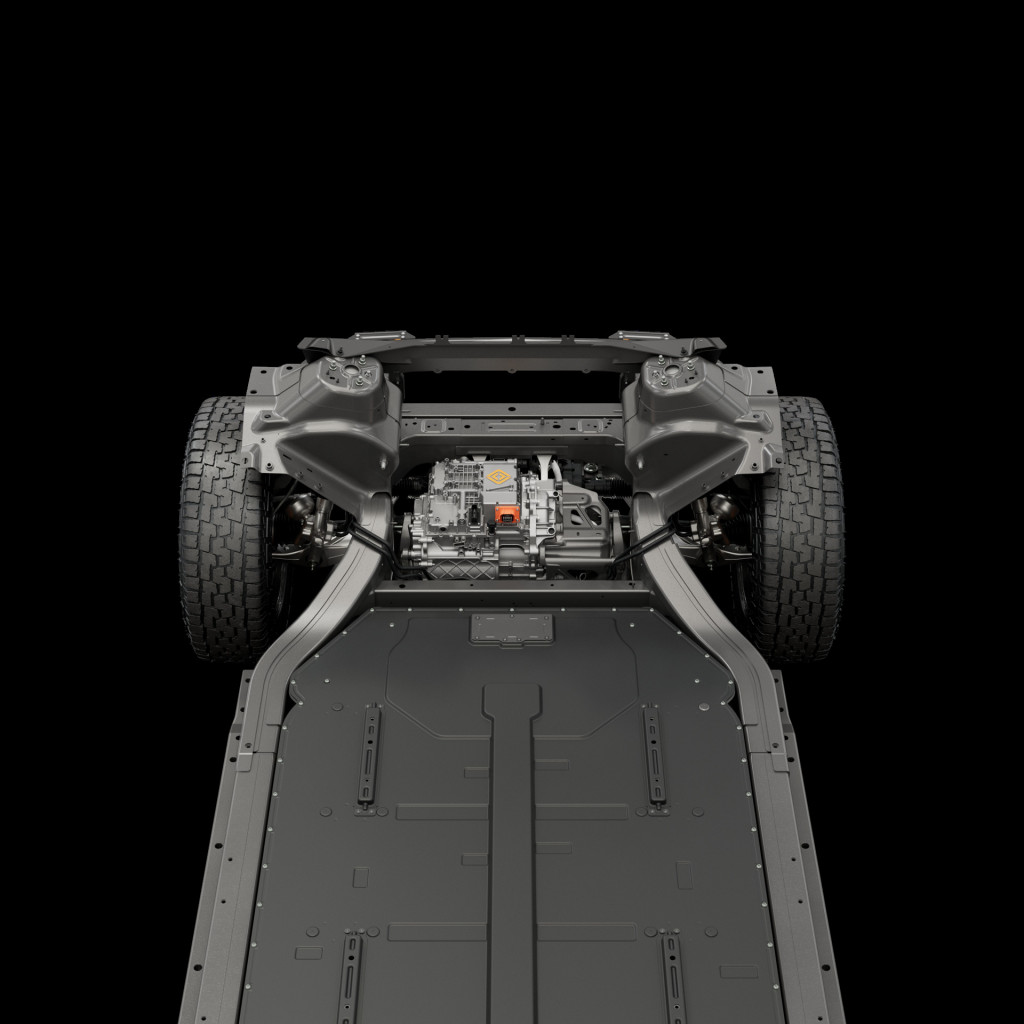
Rivian dual-motor components
In the meantime, Rivian said that it is working to build out its service network, which includes third-party collision centers. As of May 9, it had 19 physical service centers plus a fleet of mobile service vehicles, with East Coast and West Coast parts distribution centers.
Rivian maintains $17 billion in cash on hand, while its Q1 operating loss of $1.77 a share was greater than analysts had anticipated. Ford opted to sell 8 million shares of Rivian on Monday, at a share price of $26.80—well below those of late last year—while it still holds many times that: about 94 million shares.
